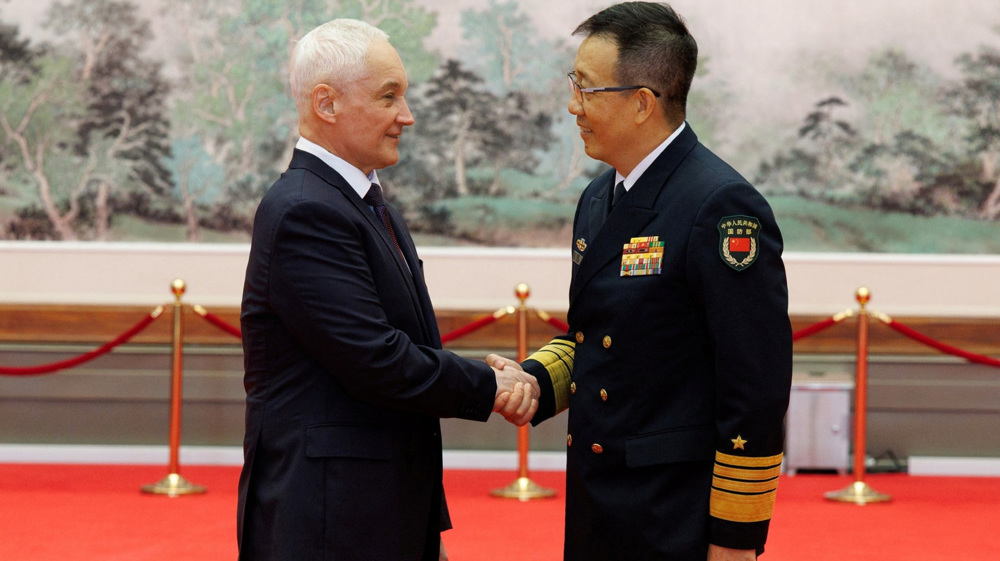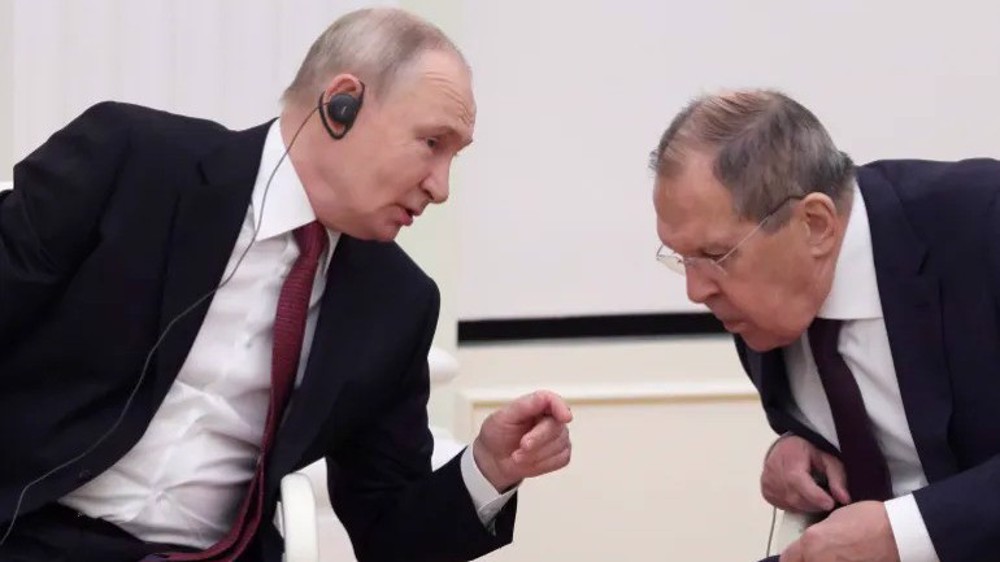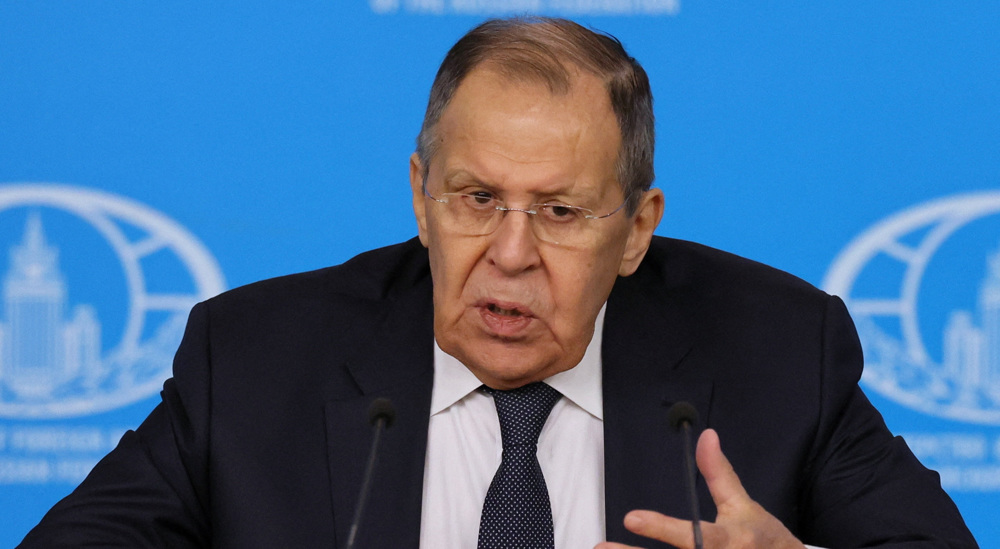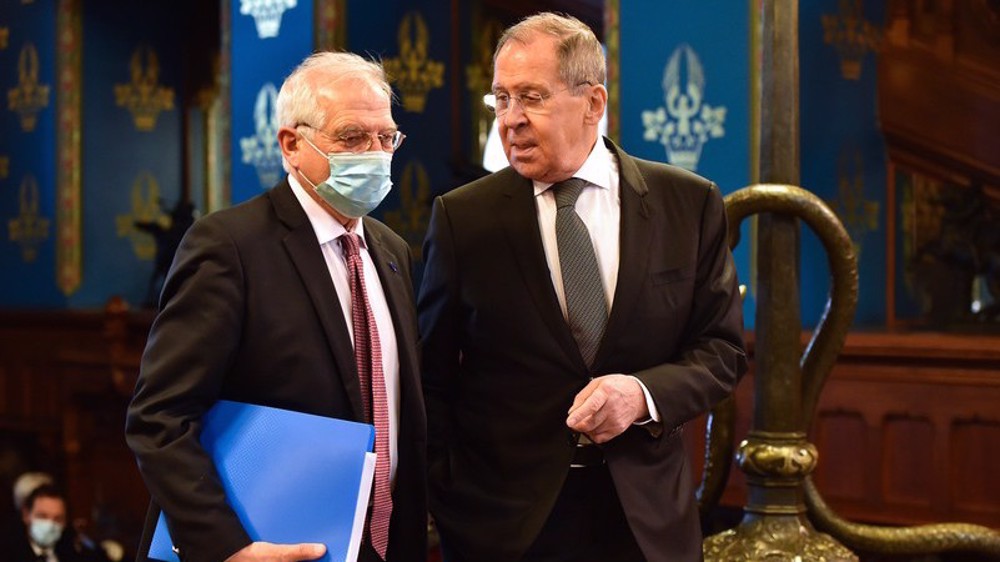Russia-EU standoff: Moscow ‘surprised’ at Borrell’s contradictory remarks
Russia says it has been surprised at the recent remarks made by the European Union's foreign policy chief Josep Borrell, after his return from a visit to Moscow, saying the EU's top diplomat has perhaps been dictated on “how to lay emphases.”
"We were surprised with Borrell’s evaluation of his visit results as it stands in contrast with statements he had delivered at a news conference in Moscow," TASS quoted the Russian Foreign Ministry as saying on Monday.
The ministry noted that Borrell "had all opportunities to immediately deliver personal evaluation" of his visit during the final joint news conference he held alongside Russian Foreign Minister Sergey Lavrov, stressing that "no one restricted him either in time or in format."
"Perhaps, the EU foreign policy chief received explanations upon his arrival to Brussels on how to lay emphases,” the ministry said, adding that in this case, it only proves who is shaping up the EU policies in reality and how they are formed.
The ministry’s statement comes as Borrell said in a blog post published on Sunday after his return from a three-day visit to Russia that the Kremlin, in his opinion, was not interested in improving Moscow-Brussels relations.
“An aggressively-staged press conference and the expulsion of three EU diplomats during my visit indicate that the Russian authorities did not want to seize this opportunity to have a more constructive dialogue with the EU,” Borrell wrote.
The Russian Foreign Ministry said in a statement on Friday that three diplomats from Poland, Germany and Sweden had taken part in unauthorized rallies in Moscow and St. Petersburg on January 23 and had been declared persona non grata. The trio was ordered to leave Russia at the earliest.
Borrell also raised the possibility of the EU imposing further sanctions against Russia over the case of opposition figure Alexei Navalny during the upcoming meeting of the bloc’s foreign ministers on February 22
“At times, the discussion with my Russian counterpart reached high levels of tension, as I called for Mr Navalny’s immediate and unconditional release, as well as for a full and impartial investigation into his assassination attempt.”
"We will discuss these issues with my fellow EU foreign ministers. As ever, it will be for member states to decide the next steps, and yes, these could include sanctions. And we also have another tool in this respect, thanks to the recently approved EU human’s rights sanctions regime," Borrell wrote.
This is while Borrell tweeted during his official visit to Russia on February 4-6 that he had had "open and frank debates" on all aspects of Russia-EU relations, TASS reported.
'Forced measure'
Russian Foreign Ministry Spokeswoman Maria Zakharova said on Sunday that her country was forced to expel the three European diplomats as a response to their interference in its internal affairs.
"Regrettably, we had to take measure. These were forced measures - to expel diplomats from three European countries, the European Union nations, who took part in unauthorized rallies," she said in an interview with Rossiya-1 television channel.
The EU, Germany in particular, has been engaged in a tense dispute with Russia since allegations first emerged that Navalny had been poisoned with a nerve agent.
In August last year, Navalny, 44, collapsed during a domestic Russian flight and was taken to a local hospital. Shortly afterwards, he was airlifted to Berlin for treatment for alleged poisoning. The allegation that Navalny was targeted with a Soviet-era nerve agent was first made by his aides, who blamed Moscow. Germany later confirmed poisoning but refused to provide any evidence, even at the request of the Russian government.
Moscow has denied involvement in any attack on Navalny.
The Russian opposition figure returned to Russia on January 17, and was detained on arrival for violating the terms of a suspended sentence.
1,000 strategic drones officially join combat units of Iranian Army
VIDEO | Germany, not just merely an economic recession
Discover Iran: Hormozgan, home to the last lenj boatbuilders of Persian Gulf
VIDEO | Condition of Gaza hospitals at the beginning of phase two recovery
VIDEO | Tehran metro station vandalized in attack by foreign-backed terrorists
VIDEO | Angry Iraqis set fire to Trump image, US flag
'It's simple — Trump's failing': Netizens rip into US warmongering against Iran
ICE shooting of protester in Minnesota













 This makes it easy to access the Press TV website
This makes it easy to access the Press TV website